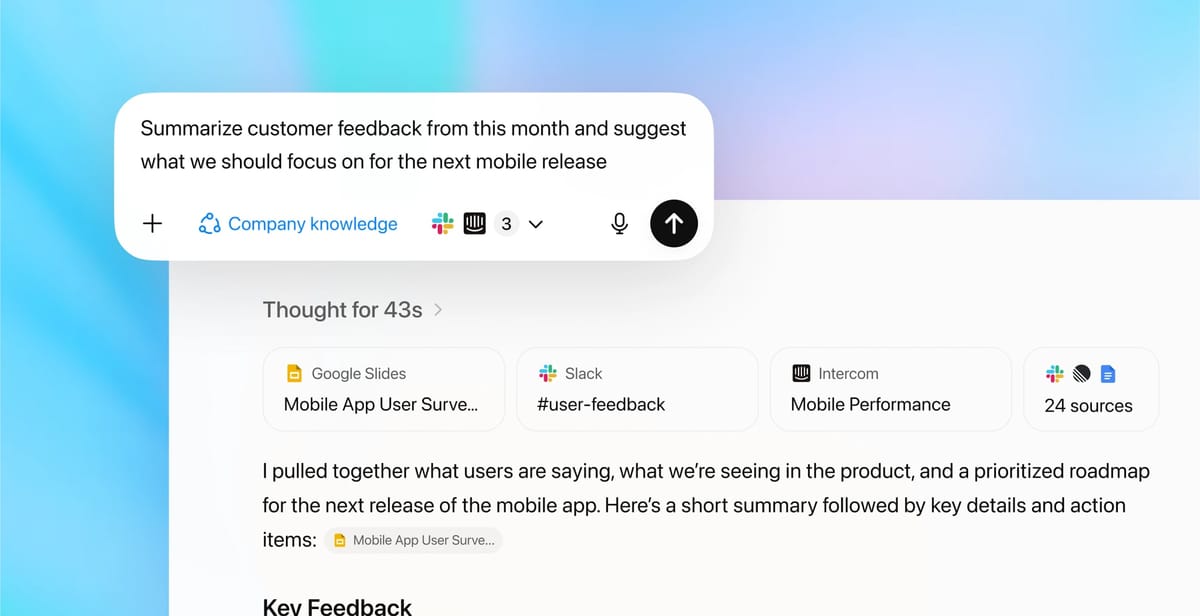
OpenAI's rolling out company knowledge for ChatGPT Business, Enterprise, and Edu users—connecting Slack, SharePoint, Google Drive, GitHub, and other work apps to give ChatGPT access to internal company data. It's powered by what OpenAI calls "a version of GPT-5 that's trained to look across multiple sources," providing cited answers based on what's actually happening inside a company.
Key Points
- Company Knowledge lets ChatGPT access and reason over multiple enterprise data sources (docs, tickets, Slack threads) so answers reflect your business context.
- It ties into GPT-5’s enhanced reasoning and tool-integration capabilities, positioning it as an enterprise-grade offering.
- But it also raises questions around data governance, trust in LLM-based internal answers, and the friction of integrating many tools.
The feature works as advertised in demos—you can ask for client briefings that pull from Slack channels, Google Docs, and support tickets, with citations showing exactly where information came from. Permissions are respected, so ChatGPT only accesses what each user can already view. OpenAI's adding connectors to Asana, GitLab, and ClickUp this week.
But the execution reveals how far OpenAI is behind in enterprise tooling. Microsoft's had months to refine Copilot Search across its massive Microsoft 365 install base. Google's Gemini Enterprise launched as a complete platform with pre-built agents, no-code tools, and unified governance—not just search. Both competitors price at $30 per user per month, same as OpenAI.
so much of work is what I like to call the “work around work” - switching between systems, chasing context, and stitching tools together to get things done
— Brad Lightcap (@bradlightcap) October 23, 2025
company knowledge in chatgpt now does this for you
it can reason across tools like slack, sharepoint, google drive,… pic.twitter.com/pZPamQ30JK
The company's positioning this as transformative—Brad Lightcap, OpenAI's COO, claims "company knowledge has changed how I use ChatGPT at work more than anything we have built so far." Maybe. But when your competitors shipped similar features months ago with fewer limitations, calling it a breakthrough feels like marketing trying to paper over a gap.
OpenAI says it'll eventually integrate company knowledge with ChatGPT's full capabilities and make it automatic rather than manual. When that happens, it might be competitive. Right now, it's table stakes arriving late to a race that's already well underway.
Bottom line
If your company has large internal knowledge silos — docs in Google Drive, Slack channels, tickets in Jira or Intercom, repos in GitHub — this announcement from OpenAI signals a serious push to turn those fragments into coherent, actionable insights. The technical and governance hurdles are real, but the upside is meaningful: less time hunting for context, more time acting on it. If your org uses ChatGPT in the enterprise tier or is considering it, this is a moment to revisit how your knowledge workflows and data architecture support internal-AI adoption.

